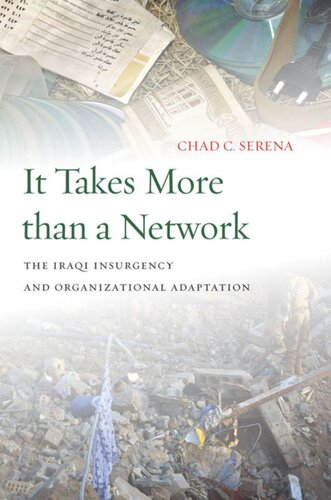

Most ebook files are in PDF format, so you can easily read them using various software such as Foxit Reader or directly on the Google Chrome browser.
Some ebook files are released by publishers in other formats such as .awz, .mobi, .epub, .fb2, etc. You may need to install specific software to read these formats on mobile/PC, such as Calibre.
Please read the tutorial at this link: https://ebookbell.com/faq
We offer FREE conversion to the popular formats you request; however, this may take some time. Therefore, right after payment, please email us, and we will try to provide the service as quickly as possible.
For some exceptional file formats or broken links (if any), please refrain from opening any disputes. Instead, email us first, and we will try to assist within a maximum of 6 hours.
EbookBell Team

4.1
10 reviewsIt Takes More than a Network presents a structured investigation of the Iraqi insurgency's capacity for and conduct of organizational adaptation. In particular, it answers the question of why the Iraqi insurgency was seemingly so successful between 2003 and late 2006 and yet nearly totally collapsed by 2008. The book's main argument is that the Iraqi insurgency failed to achieve longer-term organizational goals because many of its organizational strengths were also its organizational weaknesses: these characteristics abetted and then corrupted the Iraqi insurgency's ability to adapt. The book further compares the organizational adaptation of the Iraqi insurgency with the organizational adaptation of the Afghan insurgency. This is done to refine the findings of the Iraq case and to present a more robust analysis of the adaptive cycles of two large and diverse covert networked insurgencies. The book finds that the Afghan insurgency, although still ongoing, has adapted more successfully than the Iraqi insurgency because it has been better able to leverage the strengths and counter the weaknesses of its chosen organizational form.